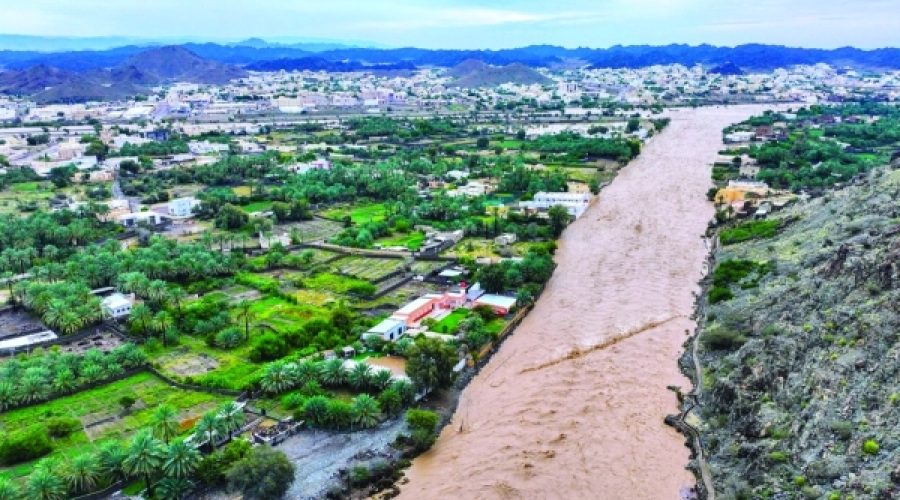التوجيه المصرفي الجديد في سلطنة عُمان بشأن الإفصاح عن مخاطر المناخ: الآثار الرئيسية على المستثمرين وأصحاب الأعمال
مسقط، ٢٧ سبتمبر - أعلن البنك المركزي العُماني أنه سيُلزم البنوك التجارية في السلطنة بالإفصاح عن المخاطر والممارسات المتعلقة بالمناخ بدءًا من السنة المالية ٢٠٢٦. ويُعدّ هذا التوجيه جزءًا من مبادرة أوسع نطاقًا أطلقها البنك المركزي العُماني لدمج اعتبارات مخاطر المناخ في رقابته على الاستقرار المالي، كما هو مُفصّل في تقرير الاستقرار المالي لعام ٢٠٢٥ الصادر حديثًا.
في حين لم تواجه عُمان بعدُ اضطرابات مالية كبيرة ناجمة عن تغير المناخ، سلّط البنك المركزي الضوء على تعرّض البلاد لمخاطر مادية، مثل ارتفاع درجات الحرارة والأعاصير والفيضانات المفاجئة. تُهدّد هذه الأحداث المناخية البنية التحتية الحيوية، والإنتاجية الاقتصادية، وقطاع التأمين. وأشار التقرير إلى أن تزايد وتيرة وشدة هذه الأحداث قد يؤثر سلبًا على تقييمات الأصول والضمانات، ويرفع من مخاطر الاكتتاب والتشغيل للمؤسسات المالية.
إلى جانب المخاطر المادية، لفت البنك المركزي العماني الانتباه أيضًا إلى مخاطر التحول المرتبطة بالتوجه العالمي نحو إزالة الكربون. قد تواجه القطاعات المعتمدة على الهيدروكربونات في عُمان لوائح بيئية دولية أكثر صرامة، وتغيرات في تسعير الكربون، وتقلبات في توجهات المستثمرين. قد تؤدي هذه العوامل إلى إعادة تقييم الأصول كثيفة الكربون، وإضعاف الجدارة الائتمانية للشركات المتضررة، لا سيما إذا افتقرت البنوك إلى بيانات مفصلة لتقييم مستويات التعرض.
وأشار التقرير أيضًا إلى وجود فجوة كبيرة في تحليل سيناريوهات المناخ داخل القطاع المصرفي، وهو ما قد يؤدي إلى زيادة التعرض للتحولات المفاجئة في السياسة أو السوق.
استجابةً لذلك، أصدر مكتب الميزانية في الكونجرس تعليماتٍ لجميع البنوك في عام 2023 بتقديم خطط تنفيذ مخاطر المناخ بحلول يونيو 2025 والبدء في الكشف عن المخاطر المتعلقة بالمناخ اعتبارًا من السنة المالية 2026. كما يتعاون البنك المركزي مع السلطات البيئية الوطنية للمساعدة في تصنيف البنوك والمقترضين حسب كثافة استخدامهم للطاقة.
يُسلّط التقرير الضوء على تغيّر المناخ كتهديد هيكلي عميق للاستقرار المالي العالمي. وحذّر من أن التأخير في جهود التخفيف والتكيّف يُفاقم تعرّض النظام المالي العالمي للخطر، مُفاقمًا ذلك بمحدودية القدرة المالية وتقييد الوصول إلى التمويل الدولي اللازم لبناء بنية تحتية متينة، وتوفير الطاقة النظيفة، والاستعداد للكوارث.
حذّر مكتب الميزانية في الكونجرس من أن تصاعد المخاطر المادية وتطور سياسات وتقنيات التحول قد يُؤدي إلى إعادة تسعير مفاجئة للأصول، وزيادة تكاليف التأمين، وتدهور الائتمان في القطاعات الهشة. إضافةً إلى ذلك، قد تُفاقم اضطرابات سلاسل التوريد المرتبطة بالمناخ آثار العدوى العالمية، مما يؤثر على تدفقات رأس المال، وأسواق السلع الأساسية، واستدامة الدين. تُشكّل هذه التطورات خطرًا نظاميًا متزايدًا قد يُقوّض الاستقرار المالي الوطني والدولي.
واختتم البنك المركزي بالتأكيد على الحاجة الملحة إلى دمج اعتبارات المخاطر المرتبطة بالمناخ في أطر السياسة المالية والتنظيم والإشراف على الصعيد العالمي.
تحليل خاص من عمانت | تصفح سوق عُمان
تكليف البنك المركزي العماني للبنوك بالإفصاح عن المخاطر المتعلقة بالمناخ اعتباراً من عام 2026 تشير إلى تحول حاسم نحو التمويل الواعي للمناخ، مما يُسلط الضوء على نقاط الضعف الناشئة في اقتصاد عُمان المعتمد على الهيدروكربون. ينبغي على الشركات والمستثمرين تقييم وتخفيف التعرض للمخاطر الجسدية والانتقالية بشكل استباقيبالاستفادة من تحليل سيناريوهات المناخ لاستباق التغيرات التنظيمية وتجنب عمليات إعادة تقييم الأصول المفاجئة. يُقدم هذا التحول فرص للشركات المبتكرة والاستثمارات الخضراء ويتماشى هذا التوجه مع أجندة إزالة الكربون العالمية، مع التأكيد على الحاجة الملحة إلى تطوير البنية التحتية المرنة في النظام المالي العماني.



